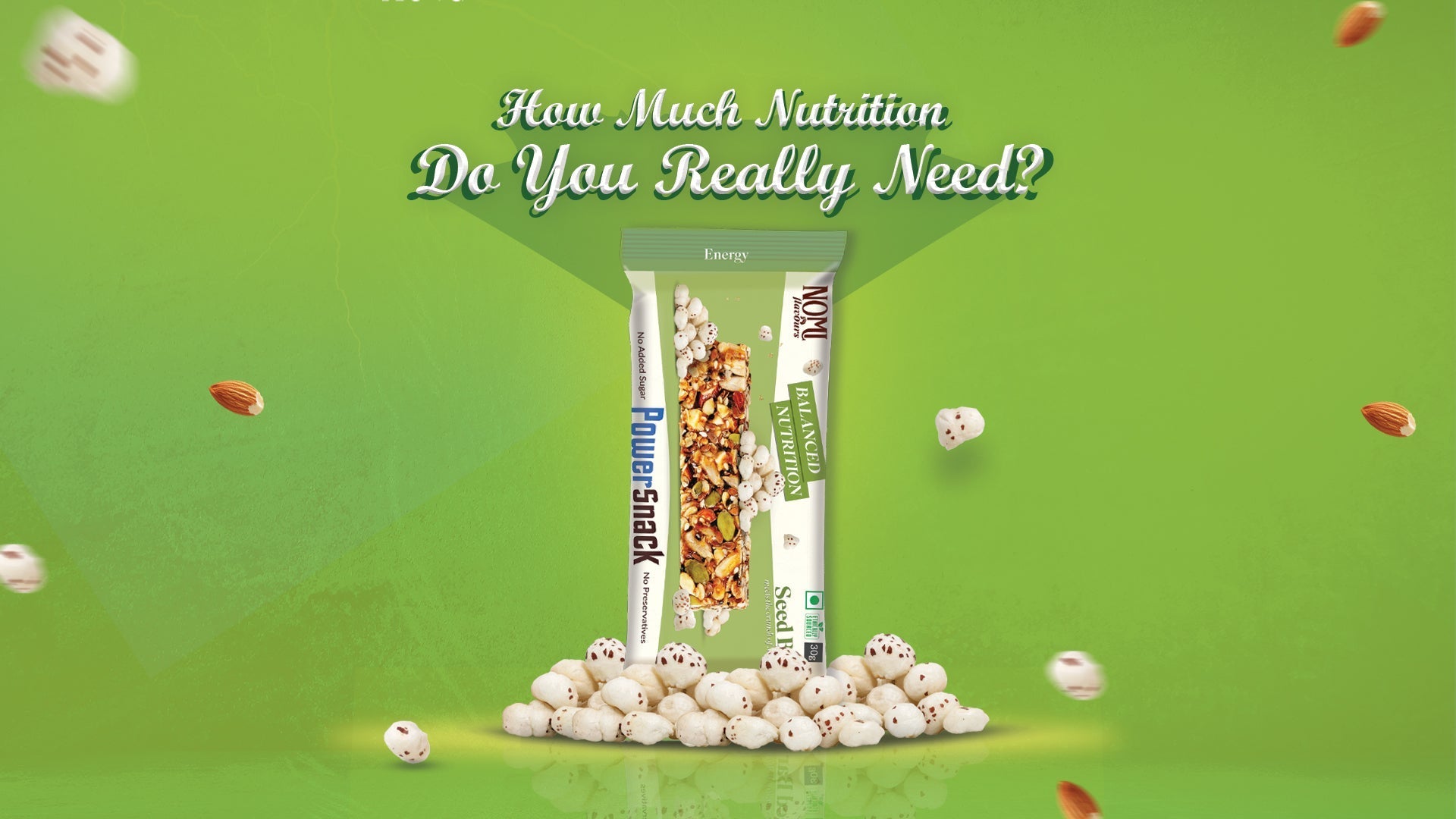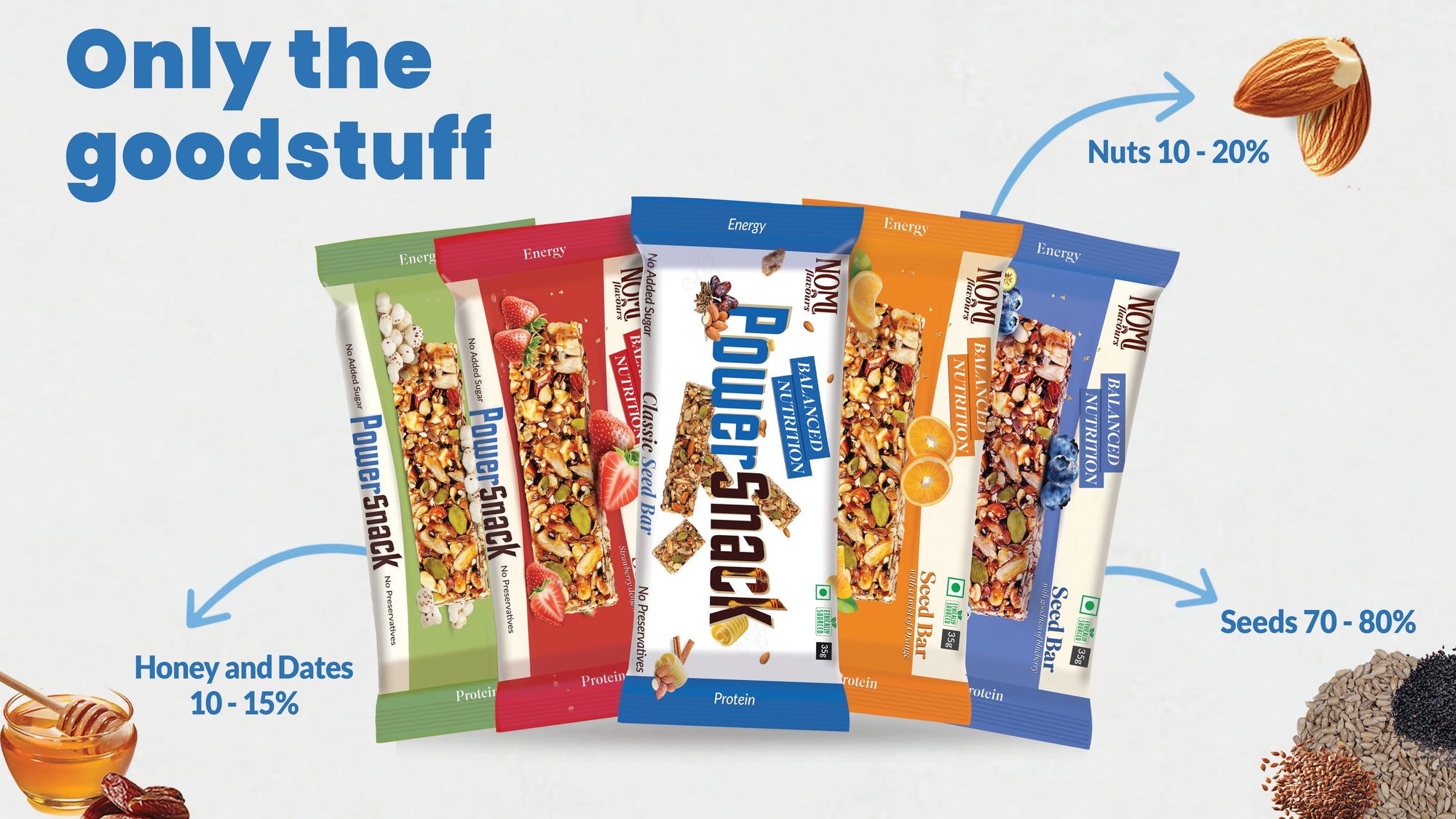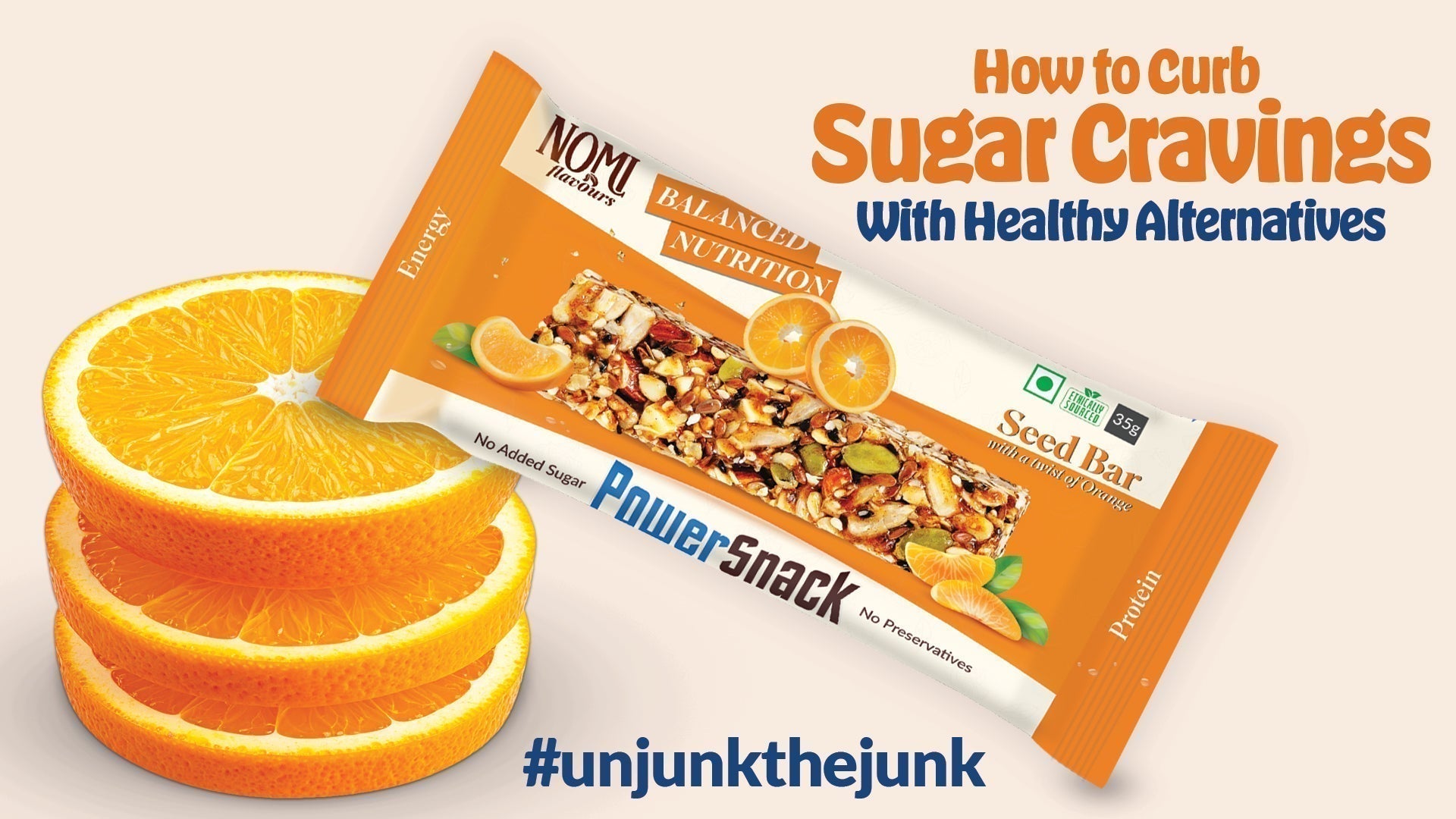In an age of health consciousness, protein bars have become a staple in many people’s diets - from athletes and fitness lovers to busy professionals and even students. They offer a convenient way to curb hunger, fuel workouts, or replace a meal on-the-go.
But with so many options on the market, how do you know which protein bar is truly healthy?
Let’s explore the red flags you must watch out for when choosing a protein bar - so you don’t fall into the trap of buying what’s essentially a candy bar dressed as health food.
1. High Sugar Content & Artificial Sweeteners
What to watch for:
Many bars are labeled as “healthy” but contain excessive amounts of added sugar or hidden sweeteners like:
- High Fructose Corn Syrup
- Glucose syrup
- Maltitol, Sorbitol (sugar alcohols)
- Artificial sweeteners like Sucralose or Aspartame
These sweeteners are often used to enhance taste while keeping calorie counts low — but they may be harmful in the long run.
Why it’s a problem:
- Added sugars can cause energy spikes and crashes, sugar addiction, and long-term health issues like diabetes and obesity.
- Sugar alcohols and artificial sweeteners can cause digestive discomfort, bloating, or even laxative effects for some people.
- Over time, your taste buds can become conditioned to crave sweetness, making it harder to eat real, whole foods.
What to choose instead:
Opt for bars with:
- Natural sweeteners like dates, honey, jaggery, or fruit pulp
- Total sugar content under 8g per bar
- No artificial or synthetic sweeteners
2. Low-Quality or Incomplete Protein Sources
What to watch for:
The source of protein in your bar matters - not all protein is created equal. Avoid bars that use:
- Collagen or gelatin as primary protein sources (these are incomplete proteins)
- Low-quality isolates like soy protein isolate, which can be heavily processed
- Minimal protein content (less than 5g per bar)
Why it’s a problem:
- Incomplete proteins do not contain all 9 essential amino acids your body needs to build and repair muscles.
- Low-quality protein may not provide the satiety or recovery benefits you expect.
- Bars with very little protein may not justify the “protein bar” label at all.
What to choose instead:
Look for:
- Plant-based complete protein sources like chia seeds, pumpkin seeds, hemp seeds, or pea protein
- Bars with at least 8–12g of protein per serving
- Transparent brands that list exact protein sources
Final Checklist: How to Pick the Right Protein Bar
When choosing your next bar, ask yourself:
|
✅ Criteria |
✔ Ideal Range / Standard |
|
Sugar content |
Less than 8g |
|
Protein content |
At least 8–12g |
|
Fiber |
At least 3–5g |
|
Ingredients |
Clean, minimal, real food-based |
|
Additives / Preservatives |
None or minimal |
|
Protein source |
Plant-based or complete proteins |
Why Nomi is Different
At Nomi, we believe in real nutrition - not marketing fluff.
Our seed-based protein bars are made from:
- Chia, pumpkin, and flax seeds for clean protein
- Natural sweeteners like jaggery
- Balanced macros to fuel your day without crashes
- Zero artificial preservatives, additives, or fillers
We’re proud to be India’s first balanced nutritive bar - and we’re here to raise the bar (literally) for healthy snacking.



